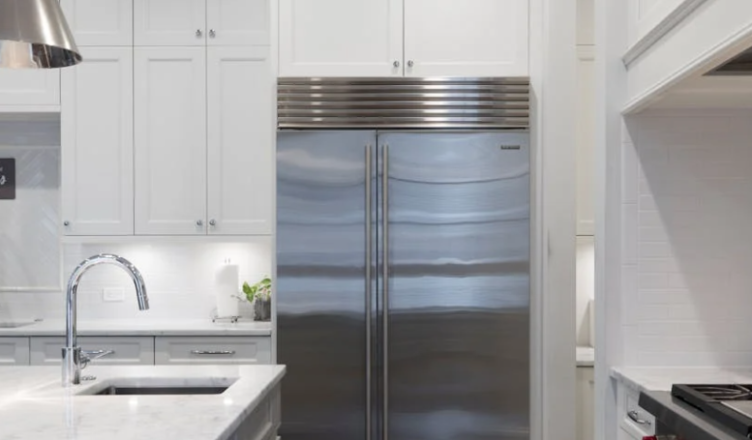Running a small restaurant comes with its own set of challenges, and one of the most critical aspects to manage is ensuring proper food storage. Effective commercial refrigeration is vital for maintaining food safety, preserving ingredients, and optimizing kitchen operations. This article explores the best commercial refrigeration solutions tailored for small restaurants, highlighting key factors to consider and recommending suitable equipment.
1. Understanding the Needs of Small Restaurants
Small restaurants typically have limited space and budget constraints, making it essential to choose commercial refrigeration units that maximize efficiency and functionality. Here are some factors to consider:
-
Space Constraints: Limited kitchen space necessitates compact and versatile refrigeration units.
-
Budget: Small restaurants often operate with tight budgets, so cost-effective solutions are crucial.
-
Storage Needs: Determine the volume and types of food that need refrigeration, considering both perishable and non-perishable items.
-
Energy Efficiency: Lower energy consumption helps reduce operational costs, which is important for maintaining profitability.
2. Types of Commercial Refrigeration Units for Small Restaurants
Various types of commercial refrigeration units can meet the unique needs of small restaurants. Here are some options:
-
Undercounter Refrigerators and Freezers: These units are perfect for small kitchens as they fit conveniently under countertops, providing easy access to frequently used ingredients without taking up valuable floor space.
-
Reach-In Refrigerators and Freezers: Available in single, double, or triple door models, reach-in units offer ample storage space while maintaining a relatively compact footprint. They are ideal for storing bulk ingredients.
-
Prep Tables: Combining refrigeration with a prep surface, these units are great for sandwich and salad preparation. Ingredients stay fresh and accessible, streamlining the food prep process.
-
Glass Door Refrigerators: Ideal for front-of-house use, these refrigerators allow for easy visibility of contents, making them perfect for displaying beverages or desserts to customers.
-
Bar Refrigerators: Designed specifically for storing beverages, these units are essential for restaurants with a bar area, keeping drinks chilled and ready to serve.
-
Ice Machines: Although not a traditional refrigeration unit, ice machines are essential for any restaurant, ensuring a steady supply of ice for drinks and food preservation.
3. Energy Efficiency and Environmental Considerations
Energy efficiency is a key factor in selecting commercial refrigeration units. Energy-efficient models not only reduce operational costs but also minimize environmental impact. Look for units with the Energy Star label, which signifies compliance with strict energy efficiency guidelines set by the Environmental Protection Agency (EPA). Additional features to consider include:
-
LED Lighting: Uses less energy and generates less heat than traditional lighting.
-
High-Quality Insulation: Ensures better temperature retention, reducing the workload on the refrigeration system.
-
Efficient Compressors and Condensers: Consume less energy while maintaining optimal performance.
4. Maintenance and Durability
Durability and ease of maintenance are crucial for small restaurants that may not have dedicated maintenance staff. Here’s how to ensure your units last longer and perform reliably:
-
Material Quality: Choose units made from durable materials like stainless steel, which is resistant to corrosion and easy to clean.
-
Regular Maintenance: Implement a routine maintenance schedule, including cleaning condenser coils, checking door seals, and monitoring temperature settings.
-
Professional Servicing: Schedule periodic professional maintenance to identify and fix potential issues before they become major problems.
5. Budget-Friendly Options
For small restaurants operating on a tight budget, there are several ways to acquire quality commercial refrigeration units without overspending:
-
Used or Refurbished Equipment: Consider purchasing used or refurbished units from reputable suppliers. These can be significantly cheaper than new models and still offer reliable performance.
-
Leasing: Leasing equipment can be a cost-effective alternative to purchasing outright, allowing you to spread the cost over time.
-
Financing Options: Many suppliers offer financing plans that make it easier to afford high-quality units with manageable monthly payments.
6. Choosing the Right Supplier
Selecting the right supplier is crucial for obtaining reliable commercial refrigeration units. Here are some tips for finding the best suppliers:
-
Reputation: Look for suppliers with a strong reputation for quality and customer service. Check reviews and ratings from other restaurant owners.
-
Product Range: Choose suppliers that offer a wide range of products, allowing you to find the best fit for your specific needs.
-
Warranty and Support: Ensure the supplier offers comprehensive warranties and reliable customer support to address any issues that may arise.
7. Case Study: Successful Implementation in a Small Restaurant
Consider a small, bustling café that serves a variety of sandwiches, salads, and beverages. The café needs to maximize its limited kitchen space while ensuring quick and efficient food preparation. By implementing the following commercial refrigeration solutions, the café significantly improved its operations:
-
Undercounter Refrigerators: Installed undercounter refrigerators beneath the prep tables, providing easy access to fresh ingredients without taking up extra floor space.
-
Prep Tables: Used refrigerated prep tables to keep perishable ingredients within arm’s reach, speeding up the sandwich and salad assembly process.
-
Glass Door Refrigerator: Placed a glass door refrigerator in the front-of-house area to display drinks, enticing customers and boosting sales.
-
Energy-Efficient Units: Chose Energy Star-rated units to reduce energy consumption and lower utility bills.
As a result, the café enhanced its food preparation efficiency, maintained better inventory control, and reduced operational costs, leading to increased profitability and customer satisfaction.
Conclusion
Selecting the right commercial refrigeration solutions for small restaurants involves careful consideration of space constraints, budget, storage needs, and energy efficiency. By choosing the appropriate types of refrigeration units, prioritizing durability and maintenance, and exploring budget-friendly options, small restaurants can ensure their kitchens operate smoothly and efficiently. Partnering with a reputable supplier and implementing a regular maintenance schedule will further enhance the performance and longevity of your commercial refrigeration systems, ultimately contributing to the success and profitability of your restaurant.

